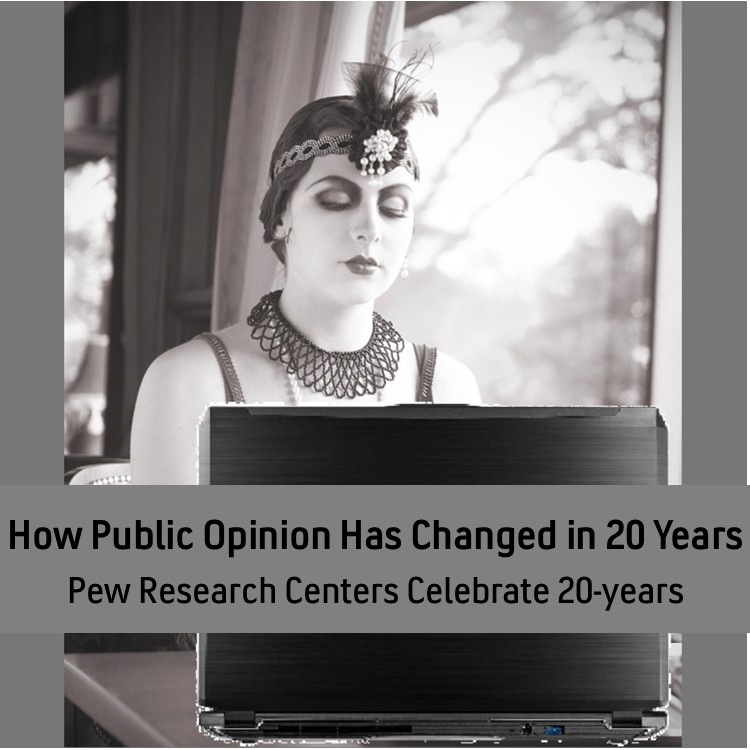 When The Pew Charitable Trusts established the Pew Research Center in 2004, their methods for surveying the American public were grounded in the traditional approach of contacting individuals on their landline phones and hoping for a response. The Center is celebrating its 20th anniversary this year, the survey techniques have significantly diversified, and now the majority of interviews are conducted online.
When The Pew Charitable Trusts established the Pew Research Center in 2004, their methods for surveying the American public were grounded in the traditional approach of contacting individuals on their landline phones and hoping for a response. The Center is celebrating its 20th anniversary this year, the survey techniques have significantly diversified, and now the majority of interviews are conducted online.
Over the past two decades, the Pew Institute reports that public opinion has also transformed in significant ways, reflecting broader changes in the country and the world. Recently they reported on how Americans’ perspectives and experiences have evolved on a range of topics, including technology and news media platforms.
The Rise of Internet and Mobile Technology
The last 20 years have seen a dramatic surge in technology that allows individuals to engage with the world in unprecedented ways. In 2004, only 63% of U.S. adults were internet users, and 65% owned cellphones (we hadn’t yet begun asking about smartphones). Today, 95% of U.S. adults navigate the internet, and 90% possess a smartphone, according based on their surveys.
Social media began gaining traction in 2004, coinciding with Mark Zuckerberg’s launch of “The Facebook” from his Harvard dorm room. Since then, social media has become widely embraced by Americans and evolved into a significant source of news, even amidst growing concerns regarding misinformation and national security.
Conversely, many traditional news outlets have faced difficulties. In 2004, daily weekday newspaper circulation in the U.S. was approximately 55 million, but by 2022, that number plummeted to just below 21 million. The decline in advertising revenue and workforce reductions have also afflicted newspapers.
In this increasingly fragmented media landscape, trust in news organizations has waned, particularly among Republicans. Nevertheless, a greater number of people still express more confidence in information from news organizations than from social media platforms.
Emerging Technologies
While some technological advancements over the past two decades have gained widespread acceptance, others remain in the realm of speculation. For instance, this year, Elon Musk revealed that his company Neuralink has implanted a computer chip in the brain of a living individual. This chip aims to enable users to operate phones or computers through thought alone—an idea that many Americans find unsettling.
Additional innovations that may have seemed improbable in 2004 include driverless cars, space tourism, AI chatbots like ChatGPT, and gene editing to minimize a child’s risk of serious health conditions. Research indicates that Americans are still becoming acquainted with these emerging technologies and forming opinions about them, suggesting that public attitudes toward these and similar innovations will continue to evolve over the next 20 years.
